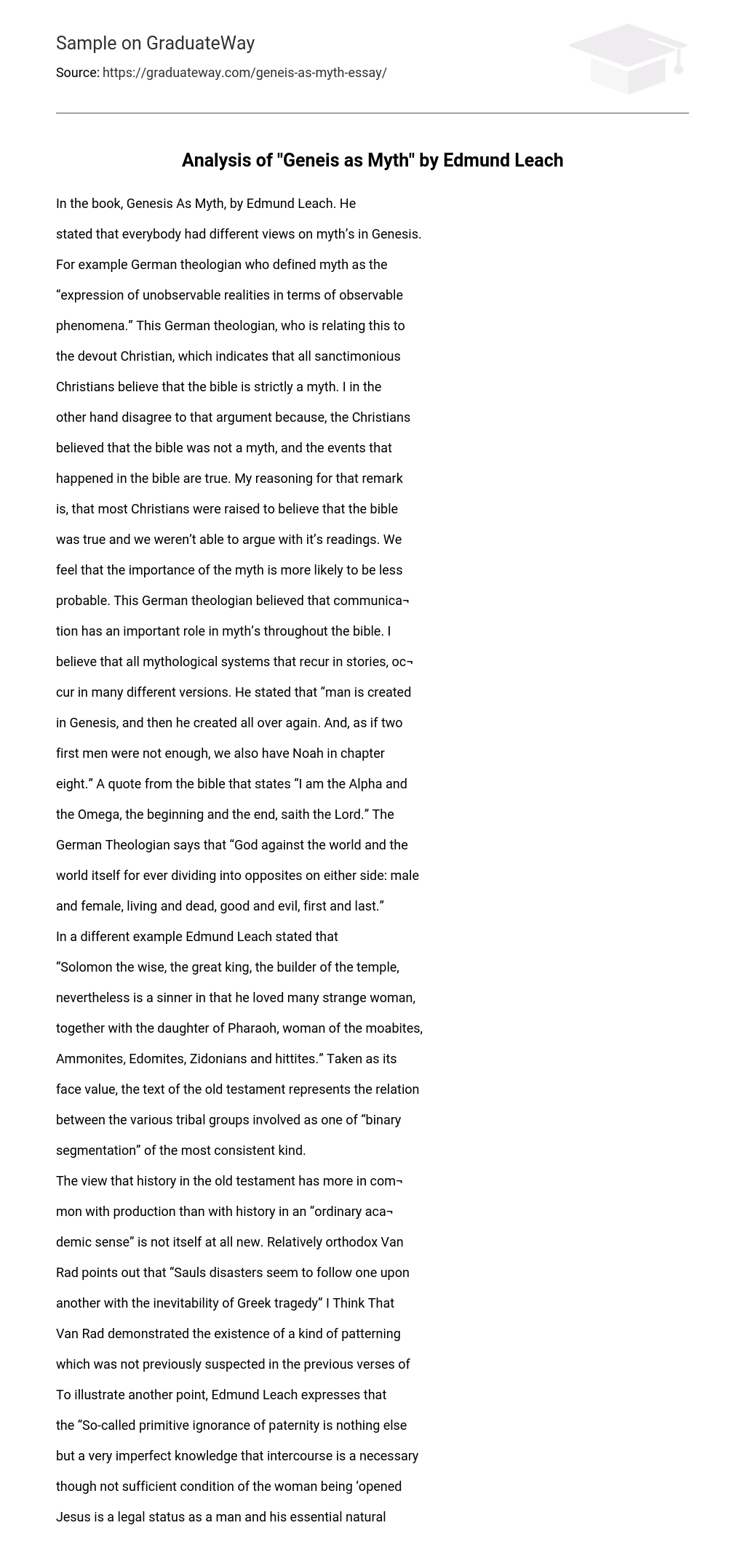There are differing perspectives on myths in Genesis. A German theologian defines myth as the representation of unseen realities through observable phenomena and links this definition to devout Christians, implying that they view the Bible solely as a myth. However, I disagree with this argument because Christians generally believe that the Bible is not a myth and its events are true. This belief is instilled in us from a young age, leaving little room for debate on its teachings.
From my standpoint, I find it more likely that myths have lesser significance. Additionally, the German theologian suggests that communication plays a significant role in myths throughout the Bible. In contrast, I believe that mythical systems often appear in various versions within stories. For instance, the theologian emphasizes how man is created and then recreated in Genesis. Furthermore, we also encounter Noah in chapter eight.
The Bible declares that God is the Alpha and the Omega, representing both the beginning and the end. However, a German Theologian argues that God and the world are constantly divided into opposing elements such as male and female, living and dead, good and evil, first and last. Edmund Leach provides another example with Solomon’s paradoxical status as both wise and a great king who built the temple but also a sinner due to his relationships with foreign women from different tribes including Pharaoh’s daughter. In the Old Testament text, tribal groups are portrayed through a “binary segmentation.” Interestingly, when examining history in an academic sense within this context, production holds more significance than ordinary historical events. Van Rad points out that Saul’s repeated calamities resemble those found in Greek tragedies to reveal an unnoticed pattern. To further illustrate this point…
The text argues that the “primitive ignorance of paternity” is actually an imperfect understanding that sexual intercourse is necessary for a woman to conceive. It claims that Jesus has both a legal status as a man (through Joseph, his husband) and a divine nature (as the offspring of the holy spirit entering Mary’s body unnaturally). According to Edmund Leach, Mary was impregnated through this divine process. Overall, the text praises Leach’s logic for helping understand how myths can mislead judgment and beliefs. It acknowledges the difficulty of distinguishing myths from facts in the book of Genesis, but also appreciates how this book encouraged deeper thinking about what is true.





